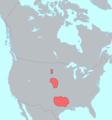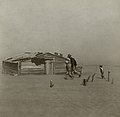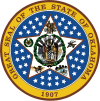Portal:Oklahoma
The Oklahoma Portal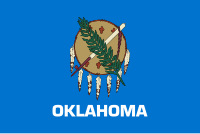 Oklahoma (/ˌoʊkləˈhoʊmə/ ⓘ OHK-lə-HOH-mə; Choctaw: Oklahumma, pronounced [oklahómma]) is a landlocked state in the South Central region of the United States. It borders Texas to the south and west, Kansas to the north, Missouri to the northeast, Arkansas to the east, New Mexico to the west, and Colorado to the northwest. Partially in the western extreme of the Upland South, it is the 20th-most extensive and the 28th-most populous of the 50 United States. Its residents are known as Oklahomans and its capital and largest city is Oklahoma City. The state's name is derived from the Choctaw words okla, 'people' and humma, which translates as 'red'. Oklahoma is also known informally by its nickname, "The Sooner State", in reference to the Sooners, American settlers who staked their claims in formerly American Indian-owned lands until the Indian Appropriations Act of 1889 authorized the Land Rush of 1889 opening the land to settlement. With ancient mountain ranges, prairie, mesas, and eastern forests, most of Oklahoma lies in the Great Plains, Cross Timbers, and the U.S. Interior Highlands, all regions prone to severe weather. Oklahoma is at a confluence of three major American cultural regions. Historically, it served as a government-sanctioned territory for American Indians moved from east of the Mississippi River, a route for cattle drives from Texas and related regions, and a destination for Southern settlers. There are currently 26. According to the 2020 U.S. census, 14.2 percent of Oklahomans identify as American Indians, the highest indigenous population by percentage in any state. A major producer of natural gas, oil, and agricultural products, Oklahoma relies on an economic base of aviation, energy, telecommunications, and biotechnology. Oklahoma City and Tulsa serve as Oklahoma's primary economic anchors, with nearly two-thirds of Oklahomans living within their metropolitan statistical areas. (Full article...) Selected article -The Trail of Tears was the forced displacement of about 60,000 people of the "Five Civilized Tribes" between 1830 and 1850, and the additional thousands of Native Americans and their enslaved African Americans within that were ethnically cleansed by the United States government. As part of Indian removal, members of the Cherokee, Muscogee, Seminole, Chickasaw, and Choctaw nations were forcibly removed from their ancestral homelands in the Southeastern United States to newly designated Indian Territory west of the Mississippi River after the passage of the Indian Removal Act in 1830. The Cherokee removal in 1838 was the last forced removal east of the Mississippi and was brought on by the discovery of gold near Dahlonega, Georgia, in 1828, resulting in the Georgia Gold Rush. The relocated peoples suffered from exposure, disease, and starvation while en route to their newly designated Indian reserve. Thousands died from disease before reaching their destinations or shortly after. A variety of scholars have classified the Trail of Tears as an example of the genocide of Native Americans; others categorize it as ethnic cleansing. (Full article...) Spotlight city -McAlester is the county seat of Pittsburg County, Oklahoma. The population was 18,363 at the time of the 2010 census, a 3.4 percent increase from 17,783 at the 2000 census. The town gets its name from James Jackson McAlester, an early settler and businessman who later became lieutenant governor of Oklahoma. Known as "J. J.", McAlester married Rebecca Burney, the daughter of a full-blood Chickasaw family, which made him a citizen of the Chickasaw Nation. McAlester is the home of the Oklahoma State Penitentiary, the former site of an "inside the walls" prison rodeo that ESPN's SportsCenter once broadcast. The prison's nickname, Big Mac, was derived from its location in the town. (Full article...) Selected pictureFeatured content
Featured lists: Oklahoma birds • Tallest buildings in Tulsa • List of tallest buildings in Oklahoma City • List of birds of Oklahoma • List of Oklahoma Sooners football seasons • List of Oklahoma Sooners head football coaches • List of Oklahoma Sooners in the NFL Draft State facts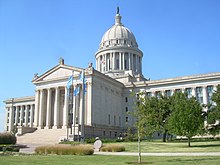
State symbols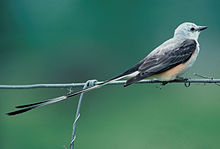
Selected biography -Samuel Jacob Bradford (born November 8, 1987) is an American former professional football player who was a quarterback for nine seasons in the National Football League (NFL). Bradford attended Putnam City North High School, where he starred in football, basketball and golf. As a senior quarterback in 2005, he threw for 2,029 yards and 17 touchdowns in 12 games. Bradford was not highly recruited coming out of high school, but he received a scholarship offer from the University of Oklahoma, which he accepted. After a redshirt season in 2006, Bradford threw for 3,121 yards and 36 touchdowns as a redshirt freshman with the Oklahoma Sooners. In 2008, Bradford became only the second sophomore to win the Heisman Trophy as he led the highest-scoring offense in NCAA history, passing for 4,720 yards with 50 touchdowns and just eight interceptions. He again led the nation in passing and also added five rushing touchdowns as the Sooners went 12–1 and advanced to the BCS national title game. (Full article...) Did you know -
General images -The following are images from various Oklahoma-related articles on Wikipedia.
Related portalsWikiprojects
Things you can do
Oklahoma topicsCategoriesNew articlesThis list was generated from these rules. Questions and feedback are always welcome! The search is being run daily with the most recent ~14 days of results. Note: Some articles may not be relevant to this project.
Rules | Match log | Results page (for watching) | Last updated: 2025-02-05 21:57 (UTC) Note: The list display can now be customized by each user. See List display personalization for details.
Associated WikimediaThe following Wikimedia Foundation sister projects provide more on this subject:
Discover Wikipedia using portals |



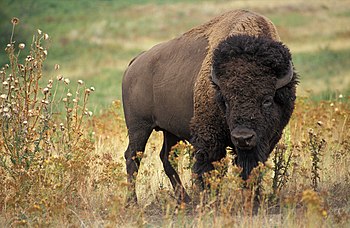








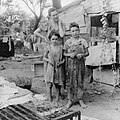








![Image 17Cartoonist's rendering of Theodore Roosevelt's initial reaction to the Oklahoma Constitution.[needs context] (from History of Oklahoma)](http://up.wiki.x.io/wikipedia/en/thumb/2/28/Teddyrooseveltoklahomaconstitution.png/120px-Teddyrooseveltoklahomaconstitution.png)




